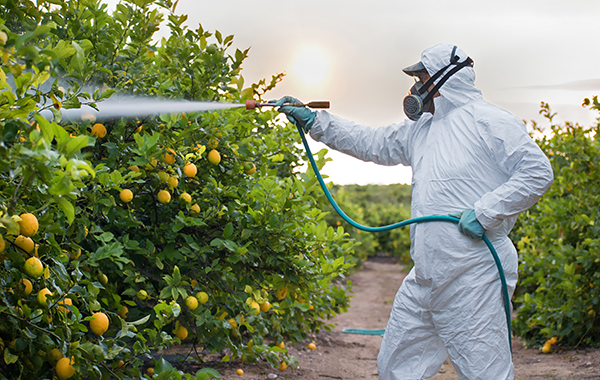
Details of the study were published in the journal The Lancet Planetary Health.
Antibiotic resistance and air pollution
With the Wuhan coronavirus (COVID-19) pandemic, the whole world experienced the terrifying potential of new diseases to infect many people. The role that environmental changes play in worsening new diseases also became clear.
While research about the links between these factors is still ongoing, findings from recent studies suggest that there are valid reasons to worry about this issue.
In a first-of-its-kind global study, researchers reported that increases in air pollution may be contributing to antibiotic resistance among pathogenic bacteria.
Decreasing air pollution could help curb such dangerous strains from spreading, but this will require collected action from world governments.
Hong Chen, a researcher at Zhejiang University in China and the lead author of the study, said that antibiotic resistance and air pollution are two of the greatest threats to global health.
Prior to the study, health experts didn't have a clear picture of the possible link between the two, but the findings of the study suggest that controlling air pollution could offer two benefits.
First, it will help reduce the harmful effects of poor air quality. Second, it could help prevent the rise and spread of antibiotic-resistant bacteria.
Microbes travel through particulate matter
Research shows that microbes can get around through particulate matter (PM), which can easily travel vast distances across the globe.
Potential sources of antibiotic-resistant bacteria include places like hospitals, farms and sewage treatment plants because they all use a lot of antibiotics to reduce the number of circulating pathogens.
Air pollution could help carry and spread antibiotic-resistant bacteria to new places from any of these locations, and pollution can get past disease control measures that are already in place.
The new study is an analysis of public health data from 116 countries from 2000 to 2018. It also examined nine species of pathogenic bacteria and 43 types of antibiotics, as well as levels of PM2.5 pollution, which refers to the amount of fine, inhalable particulates present in the air that could harm health.
Analysis of available data, including antibiotic use, sanitation, economics, climate and population, revealed that with every one percent rise in PM2.5 air pollution, antibiotic resistance also increased by 0.5 to 1.9 percent. (Related: Canadian wildfire smoke continues to affect air quality in US cities.)
The study also found that almost half a million deaths recorded in 2018 were linked to antibiotic resistance potentially connected to air pollution.
Many countries in the Global South experience some of the worst levels of air pollution, such as North Africa, the Middle East and South Asia, where antibiotic resistance is highest.
Using modeling, the researchers found that if the world could meet World Health Organization (WHO) air quality guidelines by 2050, it would help decrease the rise of antibiotic-resistant infections by as much as 17 percent. This could save 23 percent of people who otherwise would've died from such infections. It would also help save $640 billion annually.
The study is a sobering eye-opener, but it doesn't fully prove how air pollution drives antibiotic resistance forward. This is because many developing countries, which are usually the most impacted by both factors, lack public health data that could have affected the new analyses.
Nevertheless, the study shows that it is no longer safe to only think of air pollution as its own specific public health hazard. Things are more connected than previously realized, and trying to solve one issue would also require solving other issues to protect public health.
Tips to protect your family from unhealthy air
These tips can help protect you and your family from the many dangers of air pollution:
Check daily air pollution forecasts in your area
These color-coded forecasts can let you know when the air is unhealthy in your community.
Don't exercise outdoors when pollution levels are high
If the air is bad, walk indoors at the gym or use an exercise machine at home. Limit the amount of time your kids spend playing outdoors if the air quality is unhealthy.
Avoid exercising near high-traffic areas
Even if air quality forecasts are green, cars on busy highways can create high pollution levels up to one-third of a mile away. Avoid this by exercising elsewhere, like at home or in your local park.
Don't drive if you can walk, bike or carpool
Try to combine car trips. If possible, travel by bus, subway, commuter trains or other alternatives to driving your car.
Never burn wood or trash
Burning firewood and trash are among the major sources of particle pollution or soot in various areas in the U.S.
Don't allow anyone to smoke indoors
Keep your home smoke-free and support measures to make all public places tobacco-free to protect your family from the dangers of second-hand smoke.
Visit Pollution.news to read more about the many dangers of air pollution.
Watch the video below to learn how toxic Canadian wildfire smoke is destroying Chicago air quality.
This video is from the High Hopes channel on Brighteon.com.
More related stories:
Experts warn of antibiotic shortage amid increase in cases of invasive strep A.
Report: People across America are routinely exposed to vinyl chloride pollution.
Canadian officials warn: Wildfire smoke spreading across North America could last all summer.
Sources include:
Please contact us for more information.






















